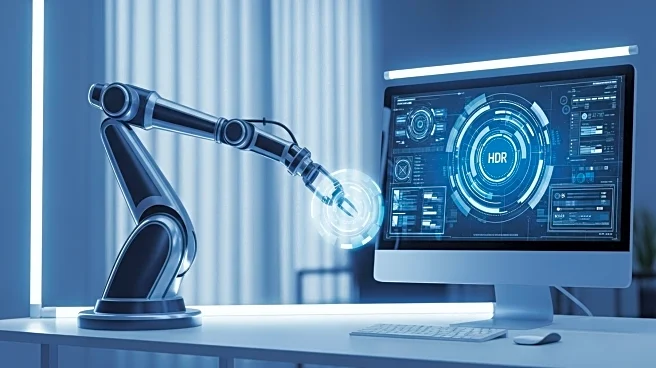What's Happening?
Walmart is taking significant steps to prepare its workforce for the future by investing heavily in artificial intelligence (AI). The company has announced a collaboration with OpenAI to provide cutting-edge AI training to its U.S. store and office-based staff starting next year. This initiative aims to equip employees with hands-on experience in AI tools, reflecting Walmart's commitment to integrating technology into its operations. The company has already launched AI-powered tools such as Sparky, a shopping assistant, and Wally, an internal tool for performance analysis. Walmart's CEO, Doug McMillon, has emphasized that AI will transform every job in the U.S., and the company is proactively preparing its workforce for these changes.
Why It's Important?
The integration of AI into Walmart's operations is a strategic move to maintain competitiveness against rivals like Target and Amazon. By investing in AI training, Walmart is positioning itself to leverage technology for improved efficiency and customer service. This initiative could lead to significant changes in the retail industry, as AI tools may streamline operations and enhance the shopping experience. However, it also raises concerns about job displacement, as AI could automate certain tasks. Walmart's approach to AI reflects a broader trend in the industry, where companies are increasingly relying on technology to drive growth and innovation.
What's Next?
Walmart's collaboration with OpenAI is set to begin next year, with the company focusing on training its workforce in AI tools. As AI becomes more integrated into Walmart's operations, the company may continue to develop new AI-powered solutions to enhance its services. The retail giant's commitment to AI could influence other companies to adopt similar strategies, potentially leading to widespread changes in the industry. Stakeholders, including employees and customers, will be closely watching how these developments impact the retail landscape.
Beyond the Headlines
Walmart's decision to invest in AI training highlights the ethical and cultural implications of technology in the workplace. As AI tools become more prevalent, companies must consider the impact on employees and ensure that they are equipped to adapt to new roles. This shift also raises questions about the future of work and the balance between human and machine labor. Walmart's approach may serve as a model for other companies navigating the complexities of AI integration.









